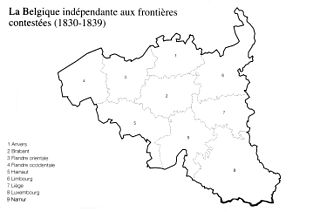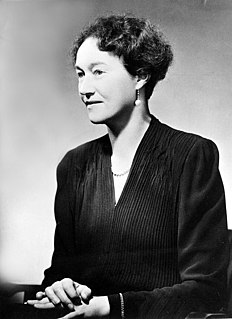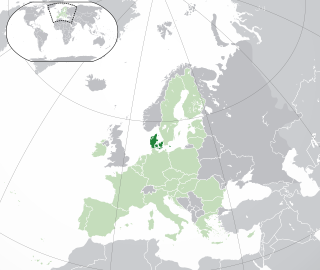
The Maastricht Treaty was signed on 7 February 1992 by the members of the European Community in Maastricht, Netherlands to further European integration. On 9–10 December 1991, the same city hosted the European Council which drafted the treaty. The treaty founded the European Union and established its pillar structure which stayed in place until the Lisbon Treaty came into force in 2009. The treaty also greatly expanded the competences of the EEC/EU and led to the creation of the single European currency, the euro.

The Treaty of London of 1839, also called the First Treaty of London, the Convention of 1839, the Treaty of Separation, the Quintuple Treaty of 1839, or the Treaty of the XXIV articles, was a treaty signed on 19 April 1839 between the Concert of Europe, the United Kingdom of the Netherlands and the Kingdom of Belgium. It was a direct follow-up to the 1831 Treaty of the XVIII Articles which the Netherlands had refused to sign, and the result of negotiations at the London Conference of 1838–1839.

Marie-Adélaïde, reigned as Grand Duchess of Luxembourg from 1912 until her abdication in 1919. She was the first Grand Duchess regnant of Luxembourg, its first female monarch since Duchess Maria Theresa and the first Luxembourgish monarch to be born within the territory since Count John the Blind (1296–1346).

Charlotte reigned as Grand Duchess of Luxembourg from 1919 until her abdication in 1964.

The Single European Act (SEA) was the first major revision of the 1957 Treaty of Rome. The Act set the European Community an objective of establishing a single market by 31 December 1992, and codified European Political Cooperation, the forerunner of the European Union's Common Foreign and Security Policy. It was signed at Luxembourg on 17 February 1986, and at The Hague on 28 February 1986. It came into effect on 1 July 1987, under the Delors Commission.

The Luxembourg Compromise was an agreement reached in January 1966 to resolve the "empty chair crisis" which had caused a stalemate within European Economic Community.
A referendum on dissolving the union with Sweden was held in Norway on 13 August 1905. It was approved by almost 100% of voters, with just 184 voting against the proposal.

The Luxembourg Crisis was a diplomatic dispute and confrontation in 1867 between the French Empire and Prussia over the political status of Luxembourg. The confrontation almost led to war between the two parties, but was peacefully resolved by the Treaty of London.

The German occupation of Luxembourg in World War I was the first of two military occupations of the Grand Duchy of Luxembourg by Germany in the 20th century. From August 1914 until the end of World War I on 11 November 1918, Luxembourg was under full occupation by the German Empire. The German government justified the occupation by citing the need to support their armies in neighbouring France, although many Luxembourgers, contemporary and present, have interpreted German actions otherwise.
General elections were held in Luxembourg on 21 October 1945. They were the first elections held after the German occupation during World War II. As a result of the war, the political alliances of the interwar period had been ended. In their place were new parties; the Christian Social People's Party, the Luxembourg Socialist Workers' Party, and the Patriotic and Democratic Group in place of the Party of the Right, Socialist Party, and Radical Liberal Party respectively. It is regarded as a realigning election, as the election established the party political order, with four established parties, that would be maintained until 1974.
A constitutional referendum was held in Greece on 15 November 1968. Voters were asked whether they wished to ratify a new constitution prepared by the dictatorial regime. It was approved by 92.1% of voters, with a voter turnout of 77.7%.

A referendum on European Union membership was held in Malta on 8 March 2003. A narrow majority voted in favour of joining but the opposition Labour Party rejected the results. The victory of the Nationalist Party in the 2003 general election confirmed the result of the referendum and Malta joined the EU on 1 May 2004.

The Treaty of Lisbon is an international agreement that amends the two treaties which form the constitutional basis of the European Union (EU). The Treaty of Lisbon was signed by the EU member states on 13 December 2007, and entered into force on 1 December 2009. It amends the Maastricht Treaty (1992), known in updated form as the Treaty on European Union (2007) or TEU, and the Treaty of Rome (1957), known in updated form as the Treaty on the Functioning of the European Union (2007) or TFEU. It also amends the attached treaty protocols as well as the Treaty establishing the European Atomic Energy Community (EURATOM).
Five referendums were held in Switzerland during 2005. The first two were held on 5 June on Switzerland joining the Schengen Area and whether registered partnerships for same-sex couples should be introduced. Both questions were approved. The third was held on 25 September on a federal resolution on extending the agreement on free movement of people to new members of the European Union, and was also approved. The final two were held on 27 November on a popular initiative "for food from an agriculture free of genetic modification" and on a labour law related to the opening times of shops in public transport hubs. Both were approved.
The first Werner-Schaus Ministry was the government of Luxembourg between 2 March 1959 and 15 July 1964. It was a coalition between the Christian Social People's Party (CSV), and the Democratic Party. It was formed after the general election of 1959.
The Dupong-Schaus Ministry was the government of Luxembourg between 1 March 1947 and 3 July 1951. It was a coalition between the Christian Social People's Party (CSV), and the Democratic Group.

A referendum on political and economic reforms was held by Poland's communist regime on 29 November 1987. The government's aim in holding the referendum was to obtain a mandate for difficult economic and political reforms. Around a third of eligible voters did not participate, defying the regime. Only 44% of Poland's 26 million eligible voters voted yes to the question on economic reform, and 46% voted yes to the second question on "democratisation" in Poland. Even though a majority of the votes cast supported the propositions, according to the rules of the referendum the majority of eligible voters had to vote yes in order for the referendum to pass. The resulting failure of the referendum was unprecedented, as it was the first time that Communist authorities in Eastern Europe had lost a vote.

Denmark in the European Union refers to the historical and current issues of Denmark's membership in the European Union. Denmark has a permanent representation to the European Union led by ambassador Jeppe Tranholm-Mikkelsen, in Brussels. The current Foreign Minister and Minister for European Affairs is Anders Samuelsen.
The Bech Ministry came into office in Luxembourg on 16 July 1926 after the resignation of the Prüm Ministry. It was reshuffled on 11 April 1932 and on 27 December 1936. It stepped down after the referendum on the so-called Maulkuerfgesetz, in which the majority of voters decided against the law.
The Reuter Ministry was the government in office in Luxembourg from 28 September 1918 until 20 March 1925. It resulted from the Chamber elections of 28 July and 4 August 1918 and was reshuffled on 5 January 1920 as a result of the elections of 26 October 1919. There was a further reshuffle on 15 April 1921, when the Liberals left the government.















